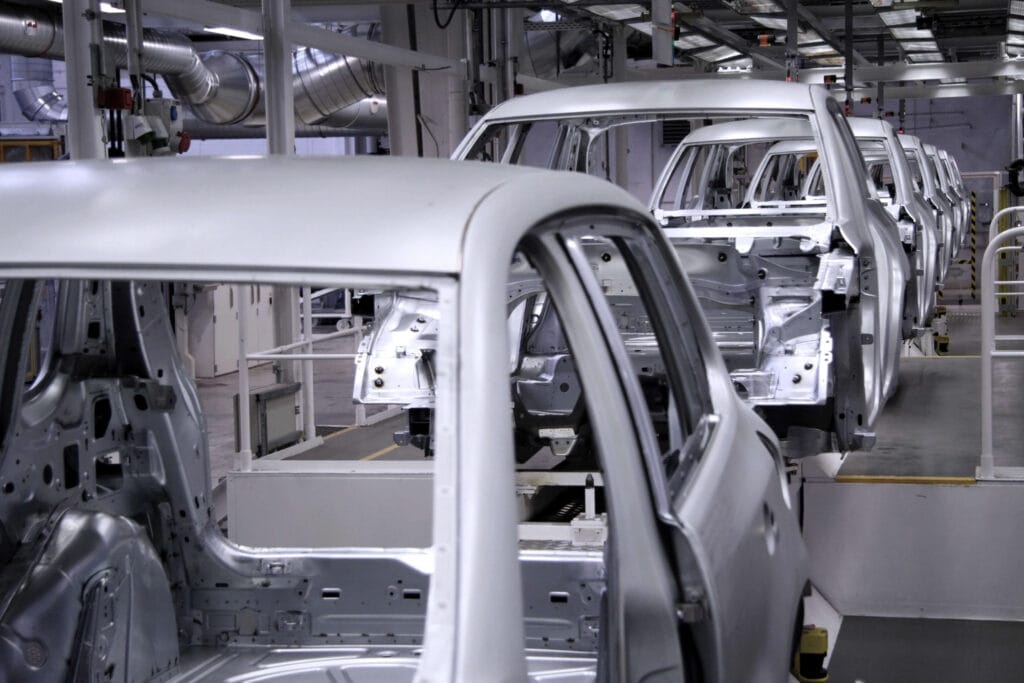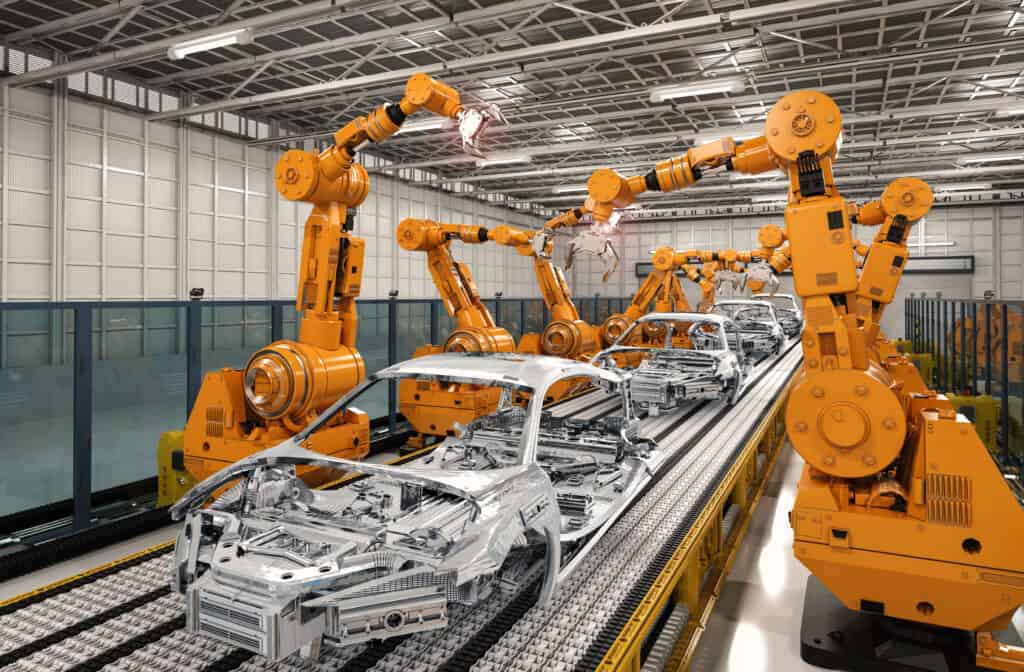
Home / Industries In Mexico / Automotive Industry In Mexico: An In Depth Review
The automotive industry in Mexico stands as a critical pillar of the nation’s economy and a vital hub within the global manufacturing landscape. It is without a doubt one of the most important industries in Mexico. For decades, Mexico has meticulously built a reputation that extends far beyond cost-effective assembly, establishing itself as a center of production excellence, engineering talent, and logistical superiority. With economic incentives such as those granted by the IMMEX program, Mexico is becoming a significant player in the automotive industry.
As global supply chains continue to reconfigure, Mexico’s strategic advantages have come into sharp focus, making it an essential partner for any company seeking resilience and efficiency. As a result, Mexico today is one of the most significant players in the worldwide automotive market, attracting billions in foreign investment and driving innovation across the North American trade bloc. For your company, therefore, understanding the sheer scale, key trends, and regional dynamics of this industry is absolutely essential for strategic planning and growth.
First and foremost, it is impossible to discuss the automotive industry in Mexico without acknowledging its dominant position in global rankings. The country consistently places among the top vehicle producers in the world as a direct result of its highly integrated and competitive manufacturing base. The production numbers clearly illustrate this point. For instance, in 2024, Mexico manufactured a record-breaking 3,989,403 light vehicles. This impressive figure surpassed its previous peak set in 2017 and represents a robust 5.6% increase compared to 2023, showcasing the industry’s powerful recovery and sustained growth.
Moreover, Mexico’s role as an exporter is even more pronounced. The nation currently ranks as the 4th largest vehicle exporter globally, a testament to its world-class quality standards and deep integration into international markets. In 2024, the country exported a new record of 3,479,086 units. The United States, of course, remains the primary destination, receiving approximately 80% of all Mexican automotive exports. In fact, a remarkable 18% of all new vehicles sold in the United States are manufactured in Mexico. Consequently, this underscores the deeply intertwined nature of the North American automotive ecosystem, further solidified under the USMCA trade agreement. Leading the production charge are global giants, with General Motors manufacturing 889,072 units in 2024, followed by Nissan and Stellantis, all leveraging their Mexican operations for global export.

While vehicle assembly often grabs the headlines, the true engine of the automotive industry in Mexico is its massive and sophisticated auto parts sector. This intricate network of Tier 1, 2, and 3 suppliers provides the essential components that feed assembly lines not only in Mexico but across the globe. Therefore, the health and growth of this sub-sector are a direct indicator of the industry’s overall strength.

The economic impact of this sector is immense. For example, in 2024, the production value of Mexico’s auto parts industry reached an all-time high of $121.7 billion USD. This figure firmly established Mexico as the 4th largest producer of automotive parts in the world, behind only China, the United States, and Japan. To illustrate its consistent growth, this represents a significant increase from the $107.6 billion USD produced in 2022. This continuous expansion is fueled by strong Foreign Direct Investment (FDI), which reached a record $6.9 billion USD in the automotive sector in 2024.
Furthermore, this sector is a major source of high-skilled employment, providing over one million direct jobs across the country. The parts manufactured are incredibly diverse, ranging from complex engine components to advanced electronics and seating systems. In fact, electrical parts and wiring harnesses alone account for nearly 20% of the total auto parts production value. As a result of this deep specialization, nearly every major global OEM and Tier 1 supplier—including companies like Bosch, Magna, and Continental—has a significant manufacturing presence in Mexico to be close to this robust and efficient supply base.
The success of the automotive industry in Mexico is concentrated in several highly developed and specialized manufacturing clusters. These regions offer unique, synergistic ecosystems of suppliers, logistics infrastructure, and skilled labor, which are crucial for the industry’s just-in-time production models.

The Bajío region, encompassing states like Guanajuato, Aguascalientes, and San Luis Potosí, is unquestionably the heartland of Mexican automotive production. This area accounts for approximately 50% of all vehicle production in the country. Guanajuato is a particularly powerful hub, hosting major assembly plants for General Motors, Volkswagen, Mazda, and Honda, in addition to over 400 specialized suppliers. Similarly, Aguascalientes is dominated by Nissan’s massive manufacturing powerhouse. Meanwhile, San Luis Potosí has attracted significant investments from premium brands like BMW and also hosts a key General Motors facility.
The states along the U.S. border are critical for both assembly and the dense auto parts supply chain that serves both sides of the border. Coahuila is a major center for vehicle production, with large-scale operations for Stellantis, General Motors, and Daimler Freightliner. Likewise, Nuevo León is home to a major KIA plant and is rapidly becoming the nation’s “EV Hub,” anchored by Tesla’s planned Gigafactory. Because of their strategic location, states like Chihuahua and Sonora are also vital, hosting hundreds of Tier 1 and Tier 2 suppliers that leverage proximity to the U.S. for just-in-time delivery.


Finally, the central region, particularly Puebla and Mexico State, represents one of the most established manufacturing zones. Puebla is home to Volkswagen’s massive North American hub and a state-of-the-art Audi plant, making the state a major exporter and employer with a long history in vehicle manufacturing.
Without a doubt, the most significant trend shaping the future of the automotive industry in Mexico is the rapid pivot toward electric vehicles (EVs). The country is quickly transforming into a strategic hub for EV production and their associated battery supply chains. This shift is clearly visible in investment patterns; for example, foreign direct investment is increasingly targeting electromobility projects, accounting for a remarkable 33.6% of all FDI in the automotive sector in 2024.
The production numbers reflect this dramatic shift. While still a fraction of the total output, EV production in Mexico doubled in 2024 to reach approximately 220,000 units. This explosive growth demonstrates the industry’s agility and commitment to the future of mobility. Major global players are leading this charge with substantial investments. For instance, Ford produces its flagship Mustang Mach-E in Mexico. Meanwhile, General Motors has invested $1 billion USD to convert its Ramos Arizpe plant for EV production. Similarly, BMW has committed $872 million USD to begin building its next-generation EVs at its San Luis Potosí facility.
This transition presents both opportunities and challenges. On one hand, it attracts new, high-value investment. On the other, it demands the rapid development of a new supply chain for batteries and electric motors. In summary, Mexico’s ability to adapt and build out this new ecosystem will be crucial for its continued success in the coming decade. The nation’s strategic response to this trend will ultimately define its role in the next generation of global automotive manufacturing.